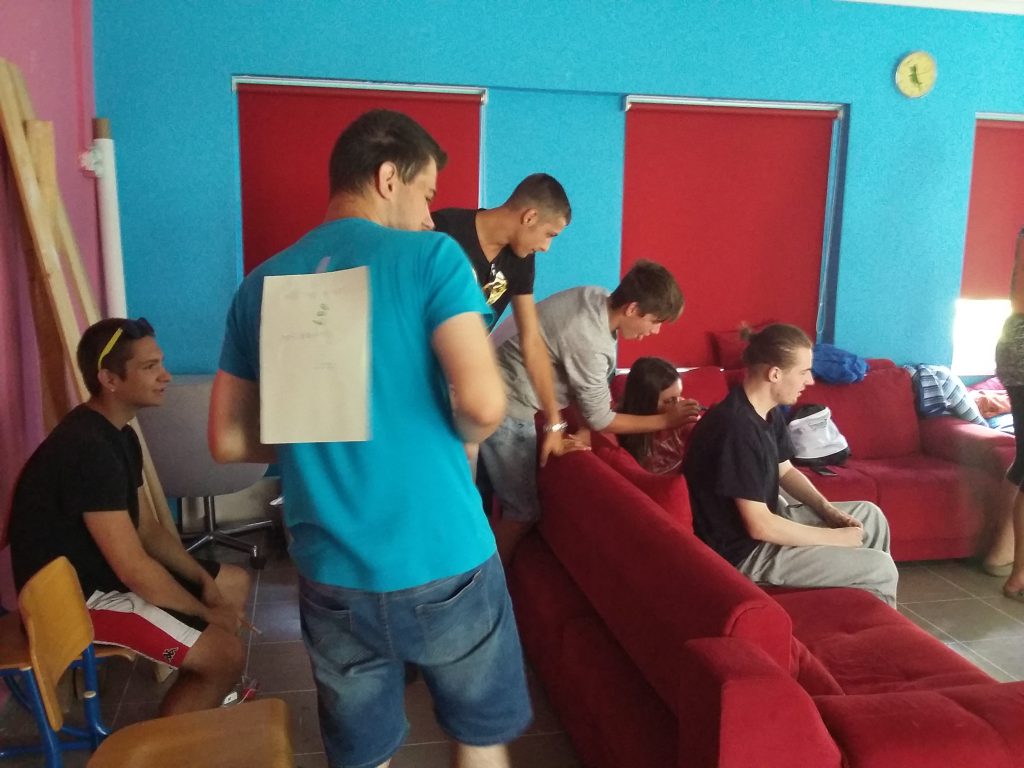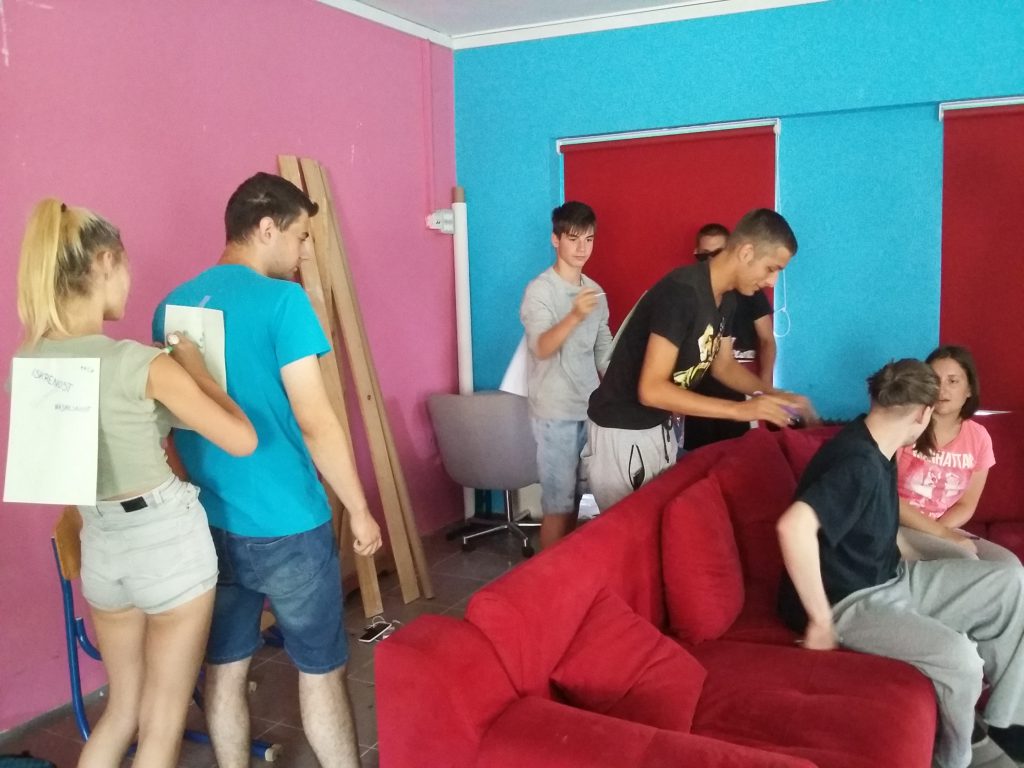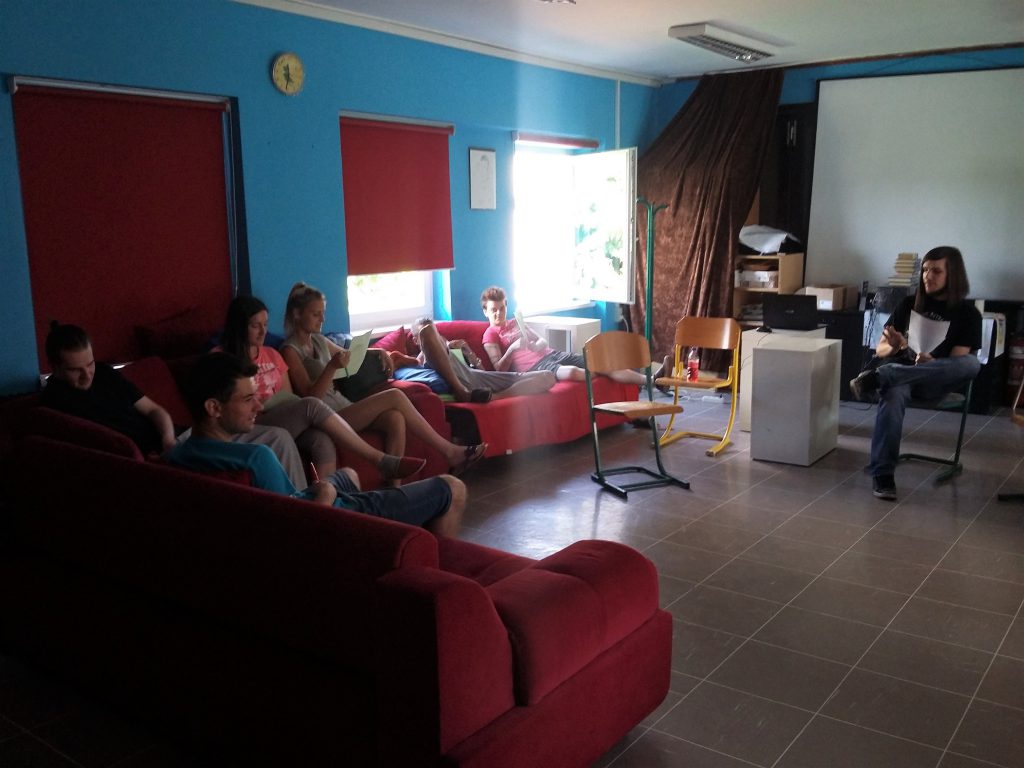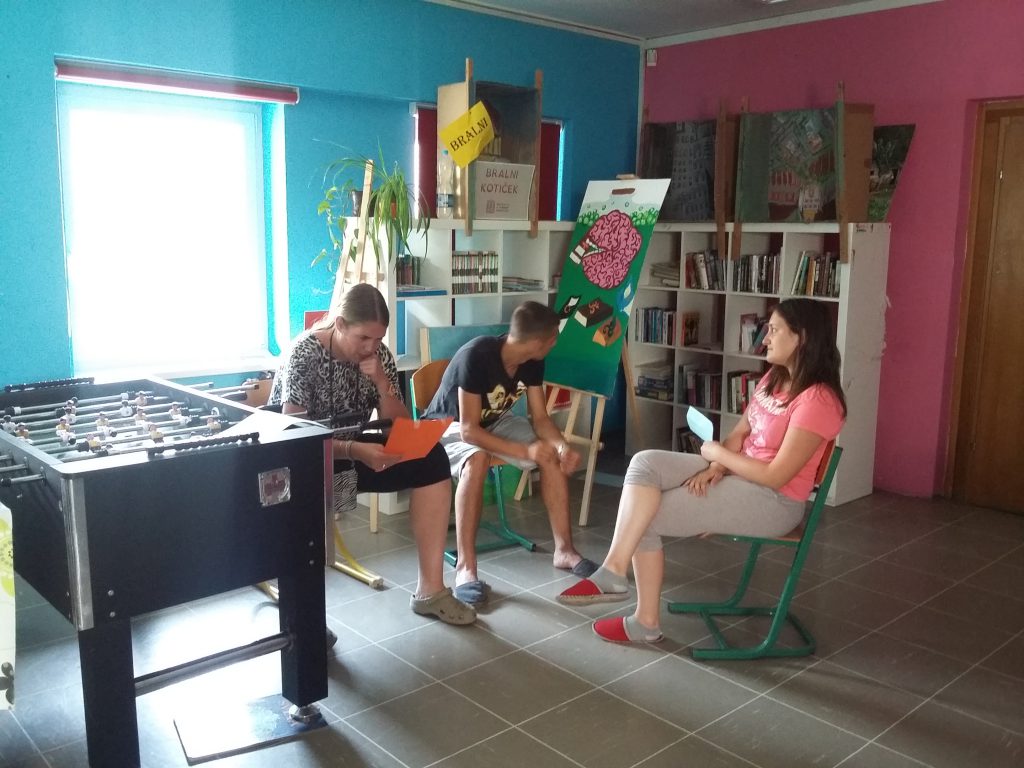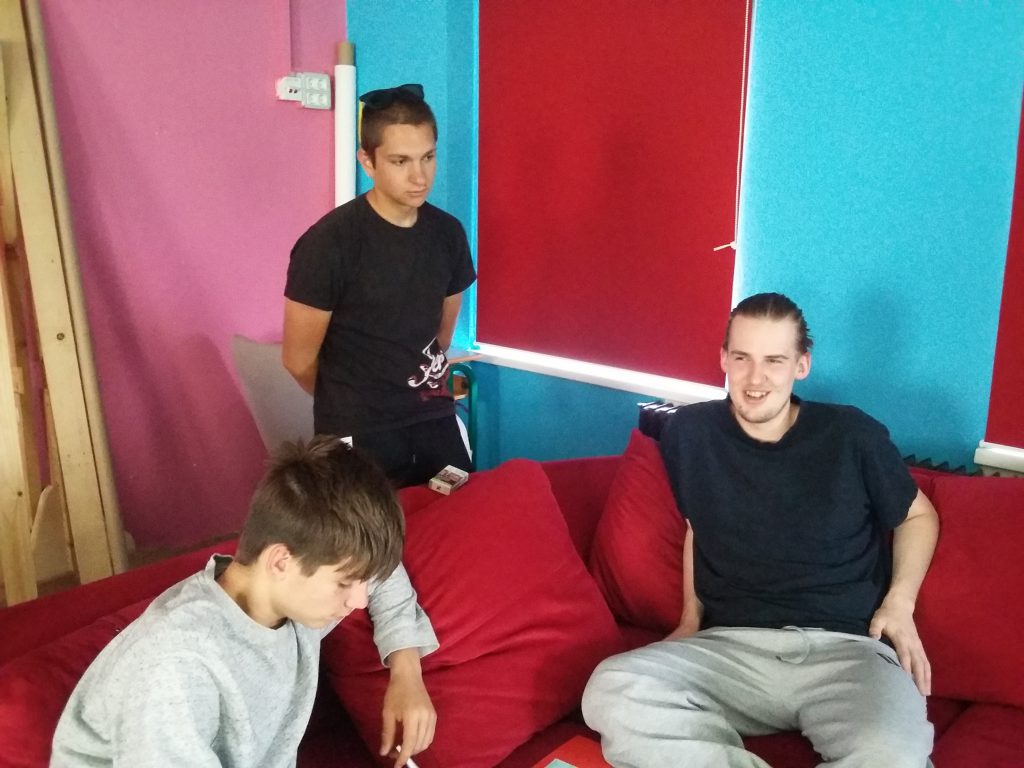Enter your keyword
Youth Projects
TRANSACTIONAL ANALYSIS IN PRACTICE
by Blaž Eržen
We started the workshop with a simple game, having all the participants stick a piece of paper on their backs and write or draw something positive, biggest strength or value they see in that person on eachothers backs.
Then each participant had to choose one thing from their paper that they think fits them the most and one thing that they don’t see themselves in, or find least fitting.
We continued talking with each participant about why they chose the thing that fits them most, how they feel when someone compliments or says that to them.
After, we went to talk about what they think why they chose the thing that fits them least. For example, one participant didn’t believe that he was »nice«.
We continued, that even though everyone had only positive things and values written on their paper, some didn’t percieve them as positive, where we continued talking about ego states and Bernes »life script« which we concluded with a brief summary of the transactional analysis. I asked them about their perception of how a child, parent or adult acts or should act, where I also explained them that any person, regardless of age, can act from any of the three states, which I explained by two three year children walking on sidewalk holding their hands, and when one child walked to close to the edge of the sidewalk, the other child pulled him away, acting from the parent ego state.
Once everyone was familiar with what we were doing we went to do some role plays, so they could see different states we act from in practice.
First, I told them one play example, and had them try to guess which state each of the roles was acting from. Then they got put in groups, where they had to make a play based on the scenes and roles I prepared for them.
After each play, other participants tried to guess which ego state the person was acting from. It was interesting to see that many confused adult with parent, or when some roles were acting from different ego state that they expected, where we also continued talking about that.
We finished the workshop with them debating about the plays and the ego states I put up for them, whether they were appropriate for the given situation and concluded that it is smart if we always try to conciously act from the adult state.
ROLE PLAYS
PLAY 1
Janez comes home from school. His mother made vegetable soup for dinner which father isn’t pleased with so he tells her how can she still not know what food he doesn’t like. Janez tries to calm his mom, and talk with father about the situation.
Play the situation in the following roles:
– Father: critical parent
– Janez: adult
– Mother: rebelious child
PLAY 2
On PLYA, during the programme Franci is on his telephone. The mentor tells him to put the phone away and starts crying about how noone ever listens to her and how her work is in vein. The rest of the group of the group jumps in because they enjoyed the workshop.
Franci tries to calm the situation, because he has to solve some family issues.
Play the situation in the following roles:
– Mentor: child
– Group: critical parent
– Franci: adult
PLAY 3
Monika is in school with her mom on a consultation with a social worker, because she didn’t do any homework and didn’t attend any sports classes throughout the year. Social worker presents her with the situation she got herself into with options how to solve it, while Monika is nodding and apoligizing. Mother assures the social worker that she will do anything in her power to solve the problem.
Play the situation in the following roles:
– Social worker: adult
– Mother: nurturing parent
– Monika: submissive child
PLAY 4
Ana and Metka are both into Žan, but Ana and Žan are a fresh couple. Metka annoys, intrigues and lies to them and about them out of jealousy.
Play the situation in the following roles:
– Ana: child
– Metka: child
– Žan: adult



